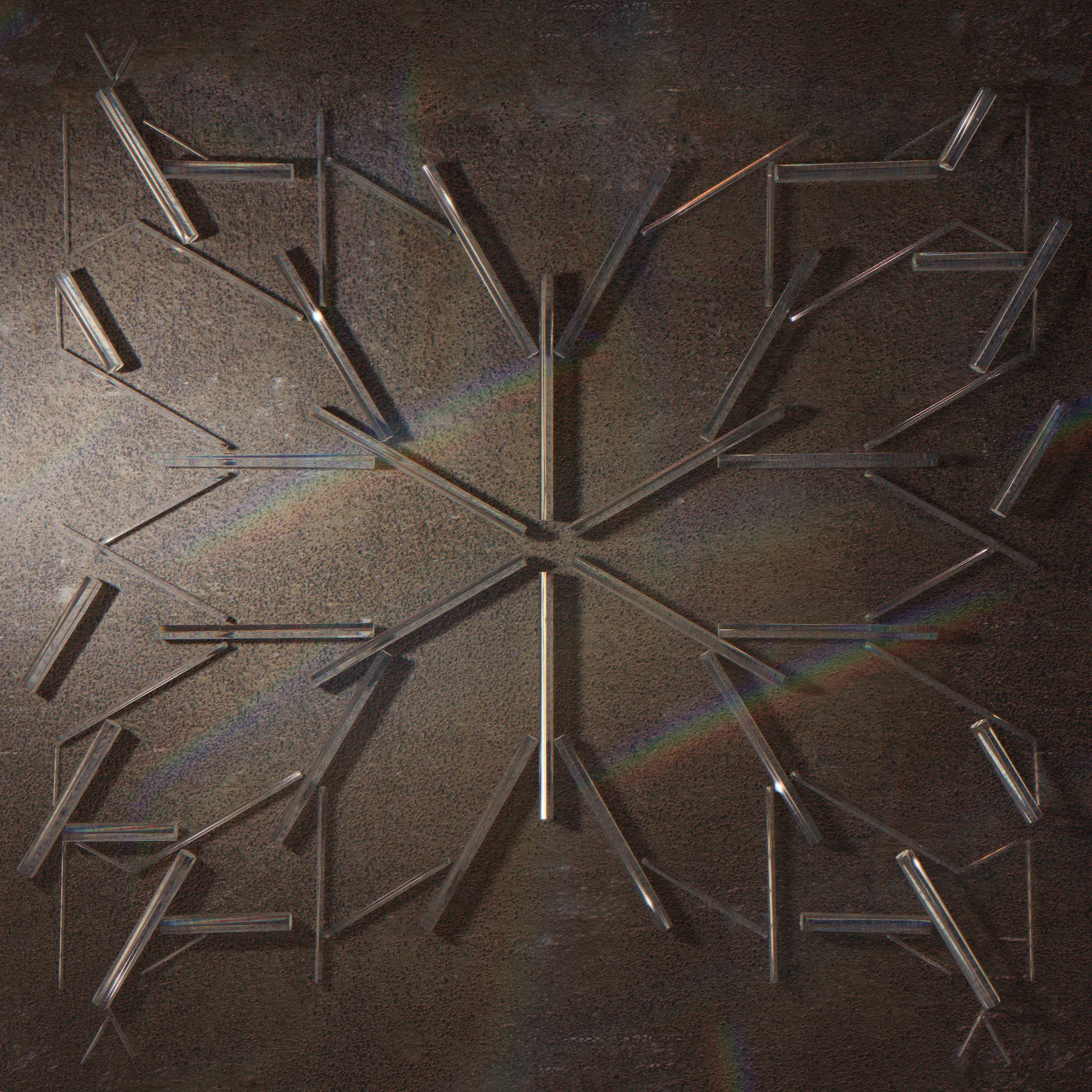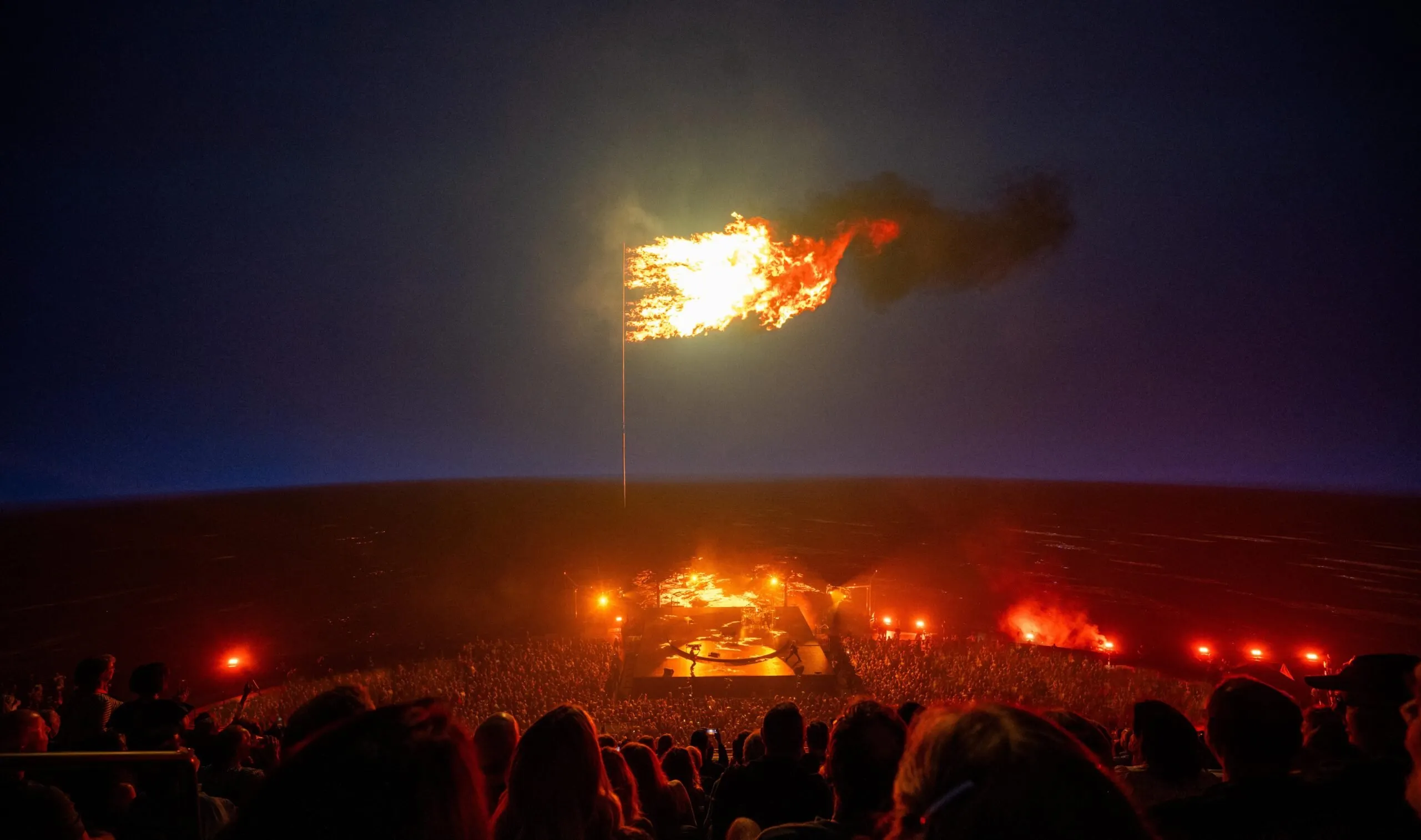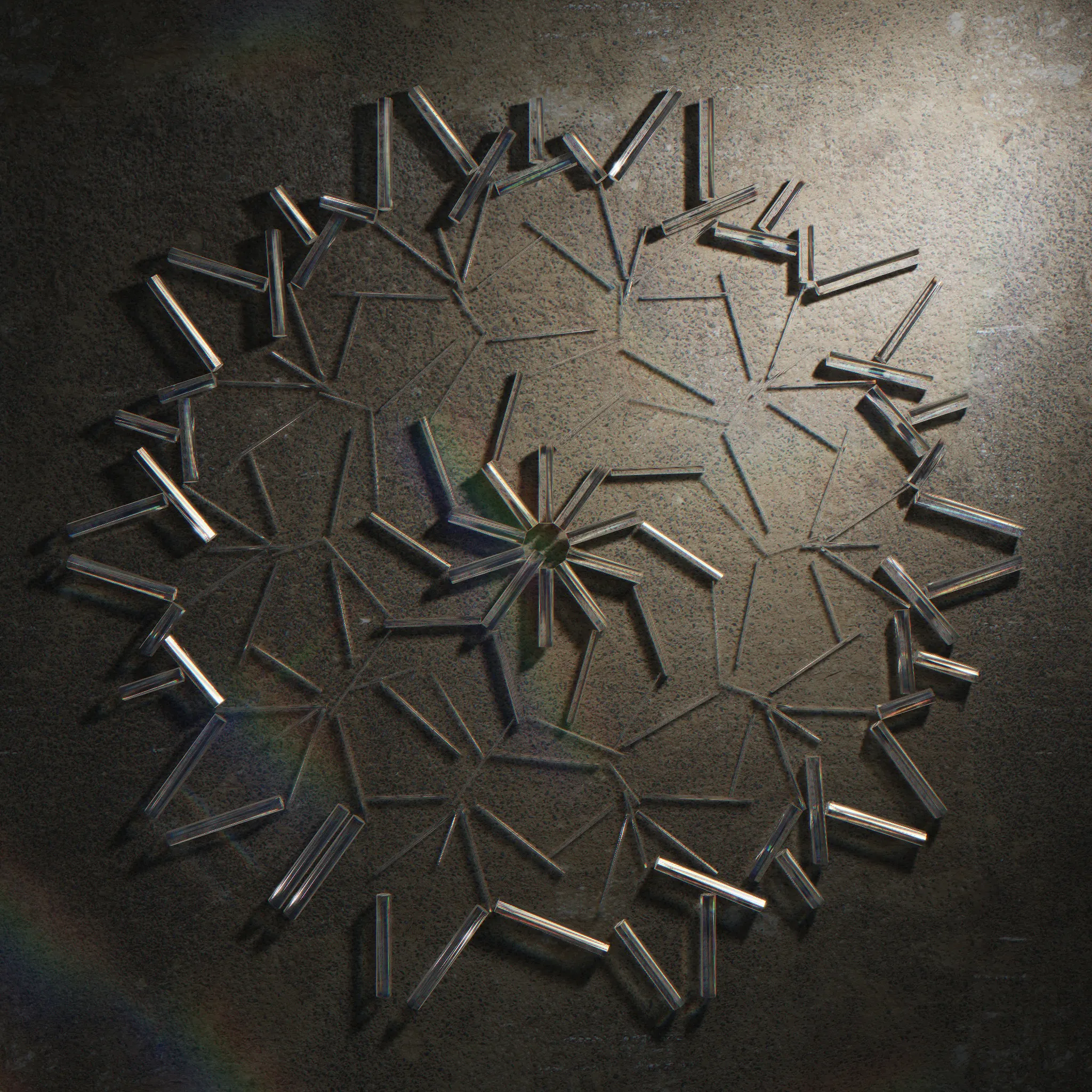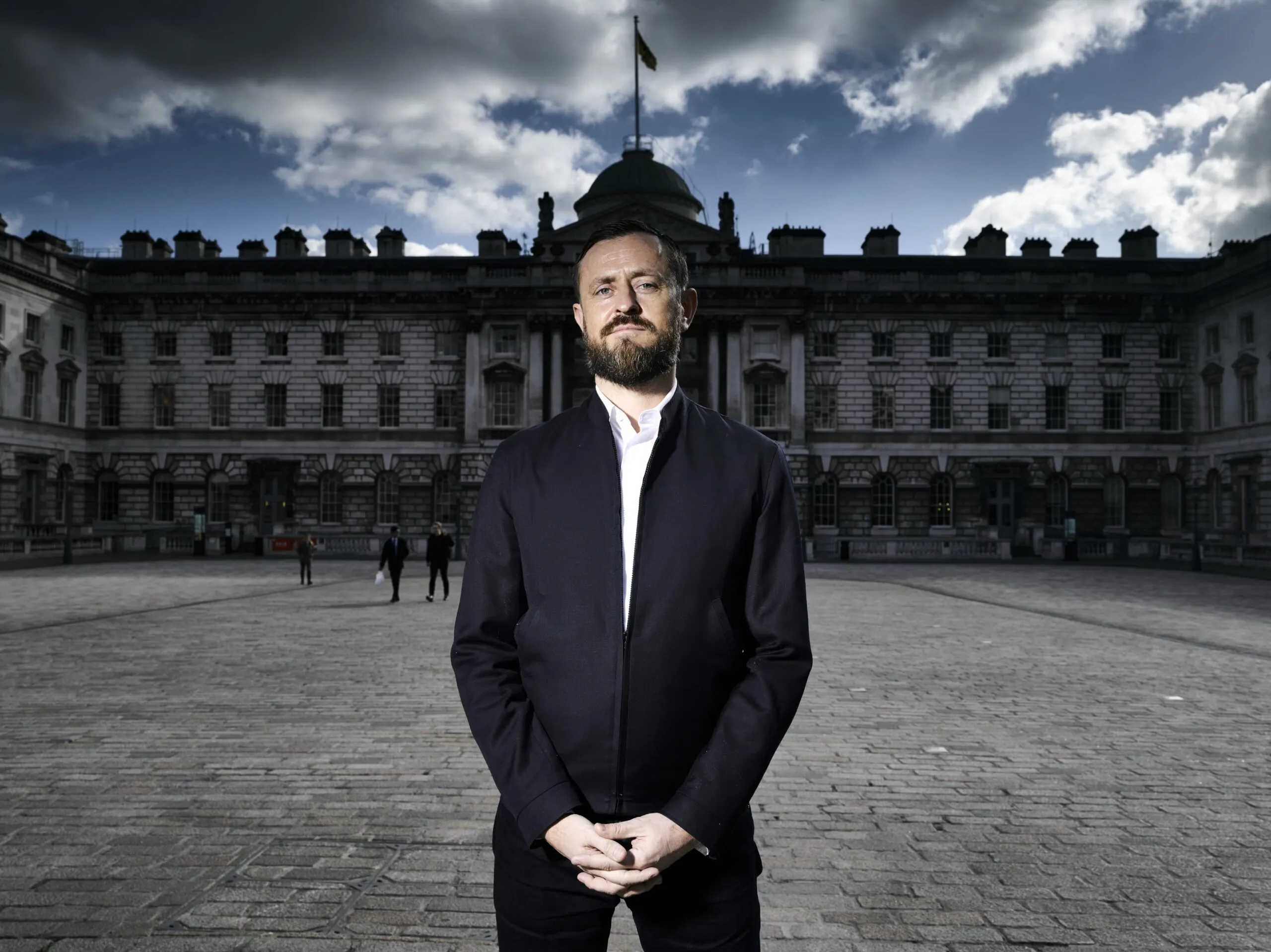On Tuesday, digital art purveyor Feral File will debut “Crystalline Work,” a new generative, on-chain series from the Irish contemporary artist John Gerrard that will algorithmically produce new pieces every hour for the next year.
The series, set to become the longest-running on-chain performance art project ever attempted, returns Gerrard to familiar territory: environmental activism. In “Crystalline Work,” a robot stationed at a digital, barren version of the North Pole performs an algorithm inspired by ice formations to create intricate designs made of crystal bar lattices.
The series also utilizes another Gerrard favorite, the WebGL browser API, to bring the hourly act of each piece’s creation to vivid life with immersive, interactive 3D graphics.
Every hour beginning tomorrow, for the next 8,760 hours, the robot will generate a new design and mint it into an NFT on the Ethereum blockchain. Each NFT will cost $100 worth of ETH, with a quarter of proceeds from the sale going to Hometree, a rainforest restoration project in Ireland.

In other ways, however, “Crystalline Work” marks a clear departure for Gerrard from his existing body of work. In past projects like “World Flag” and “Western Flag,” the artist struck a decisively dire tone in warning about the failure of existing systems—nationalist, or capitalist—to address climate change.
Now, Gerrard said he’s putting that sort of criticism behind him.
“I don't want to be involved in art that observes the world anymore, that comments upon the world,” the artist told Decrypt. “I'm not interested.”

Instead, with his latest project, Gerrard seeks to put forth a positive vision of humanity’s potential to create: a beautiful, “luminous” display of the possible.
“I'm moving on to a different kind of approach,” Gerrard said “It is optimistic in a way that the other works just are not.”
The work premieres this week at the start of the summer solstice, and will extend until next year’s summer’s solstice. The sun is central to the series, as Gerrard sees it. The pollutive heat from burned oil is, in a meta sense, old sunlight; every tree planted in Ireland as a result of the project will protect the Earth from some tangible amount of the sun’s rays; that action will in turn allow some palpable number of ice crystals to repopulate the planet’s poles.

“Instead of being a piece of ecological protest, it's a piece about positive optimistic action in the face of climate change,” Gerrard said.
Ethereum was chosen as the project’s on-chain home due to its high-profile embrace of an environmentally friendly proof of stake consensus mechanism in 2022.
But Gerrard has also intentionally tipped, as of late, into data-focused art. He firmly labels “Crystalline Work” a piece made from data, not media. If climate change is the crucial issue of the moment, as Gerrard sees it, then data is the crucial medium—despite the slow embrace of data by elite art institutions.
“My contemporary art world is rejecting data wholesale,” he said. “But I believe that data is a most critical and crucial contemporary art language.”
“You really need to engage data as an artist now,” he continued. “Because data is changing the world.”
Edited by Andrew Hayward

